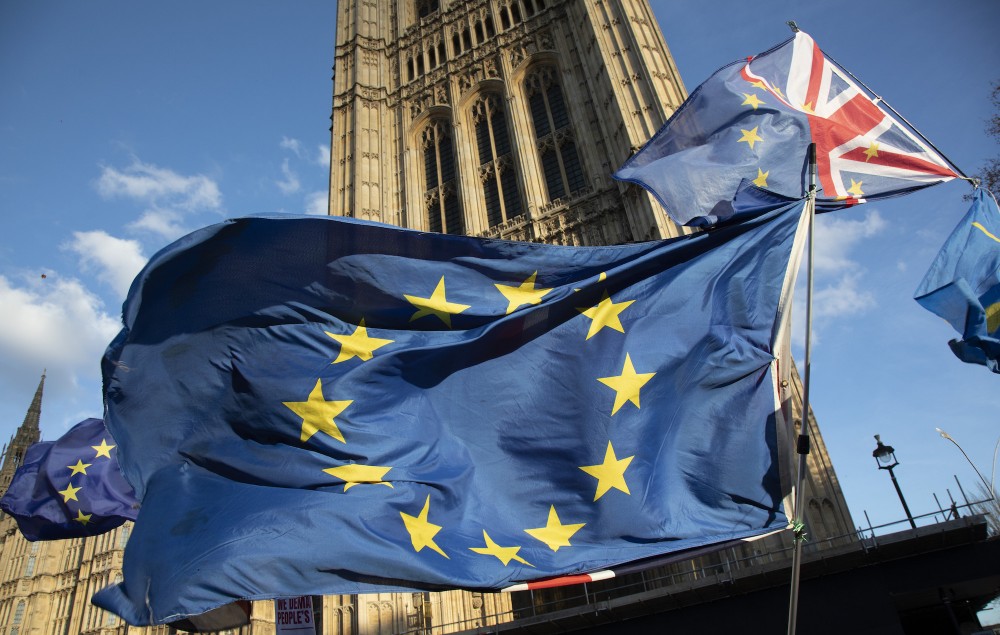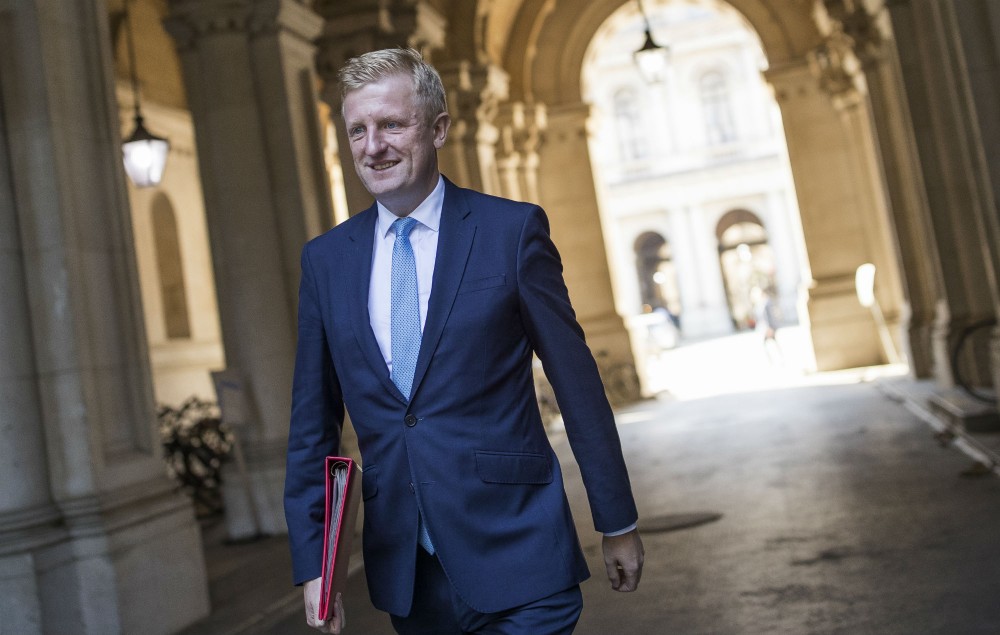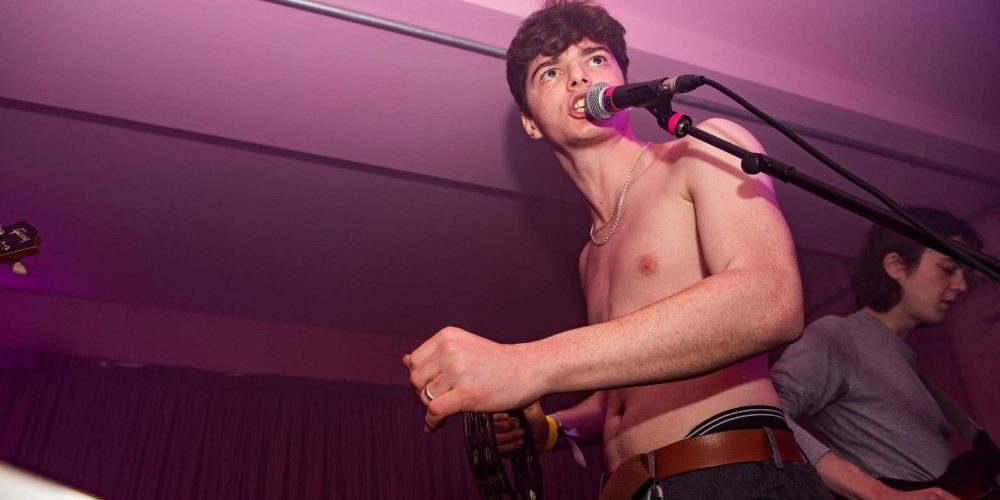Music industry feel they’ve been dealt a “No Deal Brexit”, call on government to “take it seriously and fix it”
With the row over who is responsible for the Brexit touring fiasco between the UK and the EU rumbling on, artists and music industry insiders are calling on the UK government to take swift action to rectify the situation.
After Prime Minister Boris Johnson’s Brexit trade deal failed to secure visa-free travel for artists wishing to tour Europe (adding huge costs to future live music tours of the continent will be incurred and preventing rising and developing UK artists from being able to afford it), a row erupted over who was responsible.
Yesterday, Culture Secretary Oliver Dowden put the blame for this at the foot of the EU following reports that a “standard” proposal that would exempt performers from needing a visa to enter countries in the EU for trips under 90 days was actually turned down by the UK government. The EU then hit back, denying claims that they had rejected the UK’s “ambitious proposals”, and that in fact they offered the UK 90 days of visa-free travel but the UK responded with their own proposal of just 30 days. See more info on the different deals here.
Dowden had said that “it was the EU letting down music on both sides of the Channel – not us”, before EU chief negotiator Michel Barnier said that he “regretted that the British didn’t display any greater ambition”. Now, as music fans continue to sign a petition and write to their MPS, the industry are calling for differences to be put aside and for answers to be found.
“At the moment, there are no positives,” said Mark Davyd, former concert promoter and CEO of the Music Venue Trust. “The amount of negatives is up for discussion. The best that we can hope for is reaching a point where there are no negatives. A pithy statement is basically to say that the live music industry has been asked to accept a No Deal Brexit.”
Davyd added: “Discussions with EU promoters and venues suggests they want to be able to continue to easily book British artists and their crews. Since everyone is agreed this is the best way forward, all we need is for all sides to come together and make it happen.”

Sydney Minsky-Sargeant is frontman of Yorkshire band Working Men’s Club, whose 2020 self-titled debut on Heavenly Records was named one of NME’s Albums Of The Year.
“The expense of touring in Europe was high enough anyway, especially for smaller bands,” he told NME. “The fact that visas are coming into place and there are going to be tighter restrictions is just going to make a lot of people’s lives a lot more difficult – not just bands but crew, agents, promoters, venues. It’s a lot more work for everyone.
“People just take music for granted, and they don’t actually realise how much grafting goes into this game. A lot of people feel forgotten, like they’ve just been left out of something that they didn’t even choose in the first place. It’s going to change a lot of people’s lives for the worse. A lot of jobs are going to be cut and people will be forced into different sectors.”

With many bands used to spending whole summers touring the European festival circuit, the singer added that the government shouldn’t underestimate what a large part of their income this makes up for.
“We could go and play a gig in Spain or France and they’d give much more of a shit than they do in the UK. You need to find your audience. You count on those places that you can go back to each year and know that it’s a guaranteed income. That’s the same as any other industry. It’s like shops or markets making all their money at Christmas. If that’s suddenly cut, then it’s very hard to rebuild that or to find something else to do. You’re counting on trust.”
Adding that the impact would be felt the most by smaller bands as well as those without a label who won’t be able to absorb the new costs, Minsky-Sargeant argued that it was important that fans and the music community stood together to push for change.
“This deal would have been quite detrimental to us, even now if we didn’t have a label and the support of other people,” he said. “I can’t imagine how difficult it’s going to be for bands that are self-sufficient. It’s going to wipe a lot of that out.”
“In terms of UK touring and being a massive export for the rest of the world, that’s just going to be slashed to pieces now. It’s kind of unfathomable. I think the most important thing is that everyone stands together and tries to work together for the best possible outcome. From the smallest band to the biggest labels, everyone can input something.
He added: “No one wants this, but you have to remain positive and speak out about it. It’s amazing how many people have signed this petition. Hopefully the government will take it seriously, rather than just debating it and brushing it aside. If people really want music then they’ll have to support the cause and help it reach the rest of the world.”

Stuart Braithwaite of Scottish post-rock veterans Mogwai told NME that a visa-free position needed to be arranged for both sides in order to secure that the “cultural exchange” between the UK and Europe remained intact.
“It’s crazy, and it doesn’t seem to have been such a hard thing to sort out – we just need a reciprocal arts visa,” said the frontman. “The fact of the matter is that these are the dividing lines between capitalism and culture – that’s what the Tories want. They want an isolationist and capitalist philosophy. You can’t do that with culture, you want culture to be all over the world.
“The main issue is that Tories don’t have souls, and music is about having a soul.”

David Martin, CEO of the Featured Artists Coalition, said the most important thing now was for the UK and the EU to get back to the negotiating table.
“It doesn’t matter to artists or the music industry who said what during the Brexit negotiations,” he told NME. “What matters is that the situation is rectified. I am happy to see Prime Minister Boris Johnson and Secretary of State Oliver Dowden explicitly announce that there is the will within Government to find a solution to this impasse.
“The current rules will see the UK performers subject to 30 different sets of regulations in the EU and EEA, and artists from across Europe subject to one of three modes for entering the UK, which they were not previously required to navigate. In both directions, this will add cost and bureaucracy, which is to neither the UK nor the EU’s benefit.”
He added: “As always, the FAC and our colleagues across the industry are ready to work with Mr Dowden’s Department and others in Government, to ensure a simple and effective solution is put in place, allowing performers across the whole of Europe to travel easily and ensuring fans across the continent are not disappointed.”
This week has also seen music industry insiders amplify their fears that the current Brexit deal could also prevent UK artists from being able to play in the US, claiming that if talent is unable to acquire “international recognition” through the usual channel of playing neighbouring European countries with ease, then this could make them ineligible for a visa.
Having attracted support from the likes of Foals, Dua Lipa, Biffy Clyro, Tim Burgess, Garbage and many, many more while surpassing over 250,000 signatures, the “Europe-wide visa-free” petition will now be considered for a debate in Parliament – while music fans are still being encouraged to sign it as well as write to their MP.
